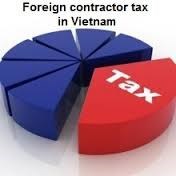Foreign Contractor Tax (FCT) in Vietnam
Hi DMS Law office in Vietnam! A foreign company (company A) has signed a general EPC contract with another foreign company (company B). Company B is the investor of a BOT project (Build-Operate-Transfer project) in Vietnam, the foreign company B shall pay the foreign company A by TTR method (Telegraphic Transfer Reimbursement) and L/C (Letter of Credit) from the bank in the country where the foreign company B is located, for works in the general EPC contract implemented by company A. Invoice for goods issued by company A shall be sent to company B’s the bank. Goods shall be delivered by company A to company B at the BOT project’s site in Vietnam. In this case, is the foreign company A required to pay foreign contractor tax (FCT) in Vietnam ?
Hi!
Foreign Contractor Tax (FCT) obligation in Vietnam:
Foreign entities providing goods in Vietnam in the form of domestic export and earn income in Vietnam under contracts between them and Vietnamese companies (except for cases in which goods are processed and then returned to foreign entities) or distribute goods in Vietnam or provide goods under Incoterms rules that require the sellers to be responsible for goods that have been taken into Vietnam’s territory (Clause 2 Article 1 Circular No. 103/2014/TT-BTC dated August 6, 2014).
Therefore, in case the foreign company A distributes goods in Vietnam or provides goods under Incoterms rules that require the sellers to be responsible for goods that have been taken into Vietnam’s territory, company A shall subject to Foreign Contractor Tax (FCT) in Vietnam.
In case the foreign company B implements BOT projects in Vietnam, in the form of setting up a company in Vietnam (the Vietnamese company) in accordance with the Law on Investment, such Vietnamese company signs contract to import machinery, equipment with the foreign company B or other foreign company (company A) in which goods are delivered at Vietnam’s border checkpoint without ancillary services in Vietnam, then the foreign company B or the foreign company A shall not subject to foreign contractor tax (FCT) in Vietnam (Clauses 1, 2 Article 2 Circular No. 103/2014/TT-BTC dated August 6, 2014).
Related topics:
Corporate Income Tax (CIT) rates in Vietnam.
Responsibility to submit VAT declaration in Vietnam
Conditions for input VAT deduction
Consulting services:
Phone: 0914 165 703 or email: dmslawfirm@gmail.com

Foreign Contractor Tax (FCT) in Vietnam
| Prepared by: Thi-Ha Nguyen, ACCA | DMS Law firm in Vietnam Director (Signed) Lawyer Do Minh Son |
RELATING ITEMS
Deduction of input VAT in Vietnam
26 May, 2020// Group: LAW ON ACCOUNTING AND TAXESEnterprises, cooperatives buying products from farming, breeding, aquaculture, catching which are not processed into other products or have only been preprocessed
Can a company deduct office rents paid to an individual landlord ?
26 May, 2020// Group: LAW ON ACCOUNTING AND TAXESIn case an enterprise leases assets from an individual and there is an agreement in the lease contract that the rent is exclusive of tax
VAT for intra-company transactions between a company and a branch
26 May, 2020// Group: LAW ON ACCOUNTING AND TAXESLawyer in Vietnam advises about VAT for intra-company transactions between a company and a branch
Declaration and payment of Business license fee in Vietnam
26 May, 2020// Group: LAW ON ACCOUNTING AND TAXESExemption of business license fee in the first year of establishment or doing business (from January 01 to December 31) is applicable to
An enterprise lends out its idle cash to other organizations, individuals
26 May, 2020// Group: LAW ON ACCOUNTING AND TAXESSeparate loans that are not a business and irregularly given by taxpayers that are not credit institutions







